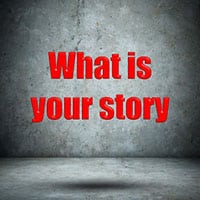 Your Book Genre – What is it? Why is it so important that you get it right? And why is it sometimes difficult to categorize a book correctly? This article explains. It’s part of a free multi-part training guide about genres of books, written by a former NY Times bestselling literary agent.
Your Book Genre – What is it? Why is it so important that you get it right? And why is it sometimes difficult to categorize a book correctly? This article explains. It’s part of a free multi-part training guide about genres of books, written by a former NY Times bestselling literary agent.
* * *
Your Book Genre – What’s Yours?
By Mark Malatesta
What’s your book genre? Maybe you think you already know, or maybe you don’t have a clue. Either way, it’s critical that you choose your book genre correctly before you begin to promote your book. If you don’t, readers will never find it (in a bookstore or online); and, if you’re trying to get a literary agent and/or a traditional publisher (like Random House) to publish your book, it’s not going to happen.
Literary agents and publishers expect you to be knowledgeable about your book genre. If you name your book genre correctly, agents and publishers will trust you as an author. They’ll be more hopeful that you’ve written a book that will satisfy the readers of your book genre, because you’re familiar with the “rules” or norms of your book genre.
So, here are some tips to help you
get your book genre correct.
* * *
Your Book Genre – Tip #1
Publishing professionals aren’t always on the same page when it comes to book genre definitions.
For example, the Literary Fiction book genre can mean different things to different agents. One agent might see “Literary Fiction” and think of commercial fiction that’s beautifully written with a somewhat poetic style, that’s still very accessible and easy to read. Another agent might see “Literary Fiction” and think of high-brow writing that’s very dense and difficult to read with very complex sentence structure and a very advanced vocabulary; in other words, the type of writing that you’d have to read five times, and you still wouldn’t be sure if you understood everything you read.
So, choose your book genre carefully. And, when necessary, add some qualifying language to your book description. That will help agents and publishers understand what your book is like and/or not like. Not all Literary Fiction books are created equal. Same things goes for most book genres.
* * *
Your Book Genre – Tip #2
Consider the possibility that your book fits into more than one book genre.
Many of the authors I work with 1-on-1 as an author consultant have books that don’t fit neatly into one book category. This applies to both fiction and nonfiction authors. Books like this are sometimes referred to as “hybrids.” You’ll also hear the term “blending genres” to describe this type of writing.
For example, you might have a novel that appeals to a broad audience due to popular themes and an accessible writing style (Commercial Fiction), that’s set in the 1800s and revolves around a famous person in history (Historical Fiction), that’s also beautifully written with a unique writing style (Literary Fiction), with a bit of supernatural something throughout the book (Supernatural Fiction, Paranormal Fiction, Fantasy Fiction, or Magical Realism).
What should you call a book like that?
Well, one option would be to call the book a hybrid and name the various book genres you’ve combined. Or, you could choose what you believe is the primary genre, and then describe the book in greater detail. That way readers would understand the other important elements of the book as well. Lastly, you could play it safe, call the book Fiction, explain what the book is about, and then let agents and publishers “fill in the blanks” in their own minds and categorize the book how they see fit.
Every book and every author is different, so I can’t recommend one approach over another (without seeing your work), but at least now you now what your options are.
* * *
Now that you understand the importance of choosing the right book genre for your book, click here to see my article about book genre definitions (and discover how to access our comprehensive list of book genres).


